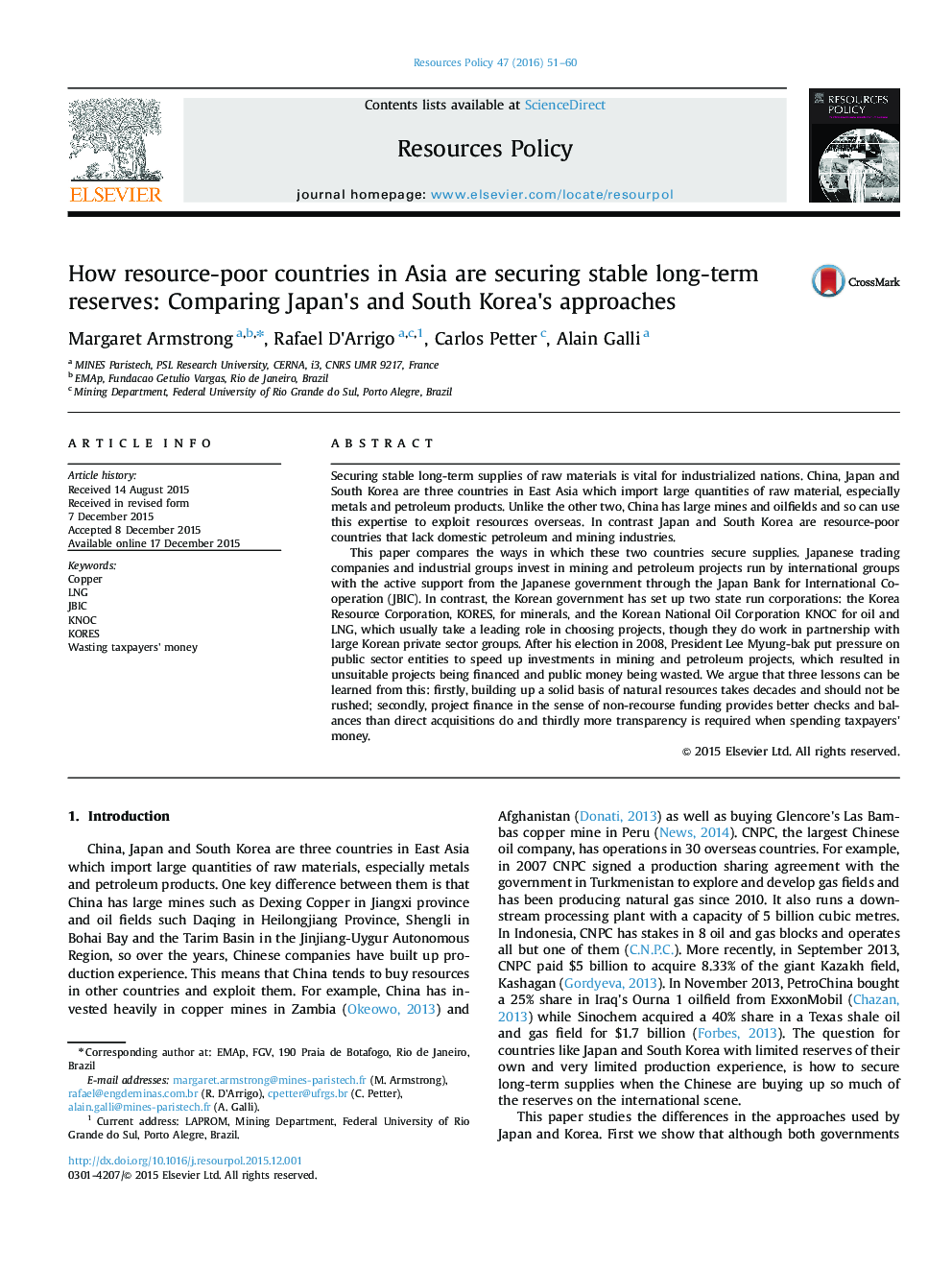| کد مقاله | کد نشریه | سال انتشار | مقاله انگلیسی | نسخه تمام متن |
|---|---|---|---|---|
| 986065 | 1480756 | 2016 | 10 صفحه PDF | دانلود رایگان |
• Compares how Japan and Korea secure long-term supplies of minerals, oil and gas.
• Analyses recent criticisms of Korean state corporations for wasting tax-payers money.
• The primary cause was political pressure to speed up acquisitions.
• We advocate much greater transparency in reporting by state corporations.
Securing stable long-term supplies of raw materials is vital for industrialized nations. China, Japan and South Korea are three countries in East Asia which import large quantities of raw material, especially metals and petroleum products. Unlike the other two, China has large mines and oilfields and so can use this expertise to exploit resources overseas. In contrast Japan and South Korea are resource-poor countries that lack domestic petroleum and mining industries.This paper compares the ways in which these two countries secure supplies. Japanese trading companies and industrial groups invest in mining and petroleum projects run by international groups with the active support from the Japanese government through the Japan Bank for International Cooperation (JBIC). In contrast, the Korean government has set up two state run corporations: the Korea Resource Corporation, KORES, for minerals, and the Korean National Oil Corporation KNOC for oil and LNG, which usually take a leading role in choosing projects, though they do work in partnership with large Korean private sector groups. After his election in 2008, President Lee Myung-bak put pressure on public sector entities to speed up investments in mining and petroleum projects, which resulted in unsuitable projects being financed and public money being wasted. We argue that three lessons can be learned from this: firstly, building up a solid basis of natural resources takes decades and should not be rushed; secondly, project finance in the sense of non-recourse funding provides better checks and balances than direct acquisitions do and thirdly more transparency is required when spending taxpayers' money.
Journal: Resources Policy - Volume 47, March 2016, Pages 51–60
